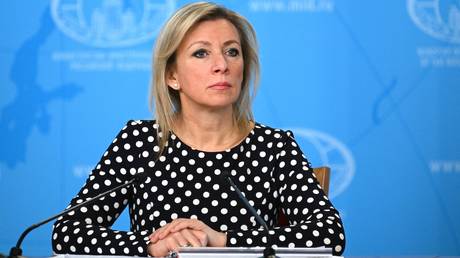The Problem With How the Regime-Change American Left Sees the World and Themselves
by Joaquin Flores, Strategic Culture:

Imagine believing that you know what is in the best interests of others, and worse, ones you have never even met, and worse still, believing you have a right to improve their situation in the manner and timeline you see fit. The belief that one has the right to save the world is termed ‘communal narcissism’. Therein lies the first problem with progressive imperialism.
The American left in the realm of foreign policy suffers from a type of prosocial communal narcissism, based in their own self-appraisal that their best intentions will be realized in the best outcomes for others, as the narcissist has themself defined it.
But the American left is significantly more dangerous and grotesque compared to standard justifications of imperialism, because it frames the discourse in such a way that it is blind to its own chauvinism, and believes itself to speak for the world.
What in other countries is viewed as quite ugly – believing oneself so enlightened and righteous that they can force others into their own image – has become a quintessential aspect of American culture post 1960’s.
We arrive then at our problem; the leftist approach has relied on soft-power tactics which require a lot more imagination, and yet also hubris, to justify. It is based overtly in telling other countries how to manage themselves as being both philosophically and categorically its proclaimed mandate.
It is the most overt form of imperialism, couched in the language of the left’s understanding of human rights and universalism. It rests gently on the ears and upon the conscience if left unexamined, but in actual fact it is far more malignant. Perhaps because they are so over-used, and perhaps here because they appear to be benign, because American society accepts these as just. But the specter of Dunning-Kruger will always rear its ugly head, and the expected outcomes will almost never materialize.
And in typical gas-lighting fashion, the failure of the subject nation to live up to the vision of the narcissist will be blamed upon the subject.
Most dangerously, soft-power tactics situate themselves outside of the founding principles of national self-determination and sovereignty that the UN was established upon in the post-war years, and yet exploits the various corrupt alphabet soup of organizations and agencies that operate under the UN’s umbrella.
Soft-power tactics were born out of a cultural shift within the U.S.., the development of media and later new media, as a form of propaganda and manufactured consent. The role of television media reporting on Vietnam left an American public taken aback by raw images of the terrorism and horror that is war.
Gone forever was the myth of purity of arms. And so a new myth, the myth of soft-power towards regime change, had to be built.
While soft-power tactics may at first appear to be less harmful to the target, because ‘military’ is not used, the socio-economic outcome of such an approach is the very definition of collective punishment and civilian targets, targets which if zeroed in on by the military would qualify as war crimes and crimes against humanity by any reasonable measure.
Enter the Save the World Generation of 1968
The ‘save the world’ generation in America that emerged from the utopian leanings of 1968, in part also out of opposition to the Vietnam War, came to define the left-wing version of American foreign policy.
The popular opposition to the war in Vietnam signaled the need for a new era in American foreign policy development. Richard Falk – the preeminent American professor emeritus of international law at Princeton University – wrote for Foreign Policy Magazine in an article titled ‘What We Should Learn from Vietnam’ published in 1970 or ‘71:
“Where there is no formidable radical challenge on the domestic scene, as in India or Japan, the American preference is clearly for moderate democracy, indeed the kind of political orientation that the United States imposed upon Japan during the military occupation after World War II. However, where an Asian society is beset by struggle between a rightist incumbent regime and a leftist insurgent challenger, then American policy throws its support, sometimes strongly, to the counterrevolutionary side.
As a result, there has been virtually no disposition to question the American decision to support the repressive and reactionary Saigon regime provided that support could have led to victory in Vietnam at a reasonable cost.”
In establishing this as a problem, Falk proposes what he terms a ‘Fourth Position’, one which would end America’s pre-occupation with supporting counter-revolutionary forces in Asia.
We can extrapolate from Falk’s thesis an historical parallel: It was forward looking Gauls inspired by their Roman neighbors who established the infrastructure of roads which Roman legionaries would later march in on under Cesar.
Likewise, allow modernizing and technology oriented communist regimes to flourish in Asia as these would ultimately create the interface with which the U.S.. could pursue its interests in the region.
In Falk’s work we find the kernel of contemporary U.S.. foreign policy and the leftoid soft-power approach, and indeed almost predicts the Nixon-Mao meeting a year or two later.
By now, everyone is familiar with Nye and Ferguson’s ideas on soft-power. By the 1990’s, left-overs from the Cold War’s Radio Free Europe were transformed into more covert projects towards soft-power, outside of the more obvious Radio Liberty and the Atlantic Council’s array of projects. USAID and the NED combined with private philanthropy of the likes of George Soros to establish a ‘legal, peaceful’ mechanism by exploiting international law and the UN’s bodies, known now as the NGO industrial complex.
Read More @ Strategic-Culture.org


